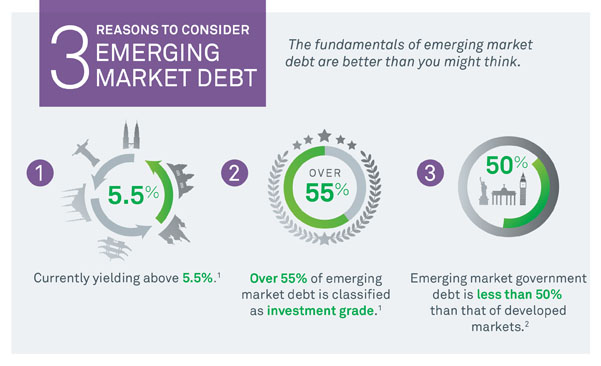
Equity derivatives can be used to invest in stocks if you are curious. These investment products allow investors the opportunity to invest in the performance of an underlying investment but not the stock. These investment products may be more beneficial in the long term than the short term. However, the short-term benefits can often be far greater. This is especially true for investors who are looking to make long-term investments. If you haven't yet tried equity derivatives, they may be worth adding to your portfolio.
Other Options
Option on equity derivatives allows investors to sell or buy underlying stocks. Equity options are less expensive than a stock purchase. Investors can gain more leverage and profit from price movements if their option expires before the money runs out. A put option, which allows an investor to sell the underlying stock, is an example of an option.

Futures
Futures trades in equities are not an actual investment. Instead, you buy a contract that gives you exposure to a physical asset, such as oil or corn. You are also exposed to weather conditions, currency fluctuations, and weather changes. Futures traders do not have physical stock, so you can't hold it in your hands. Instead, they use virtual accounts. Margin is an essential tool to offset losses.
Warrants
Although the stock market is an incredibly complex place, it can be challenging to understand how to profit from investments. Stocks are perhaps the most well-known investment vehicle. However stock warrants are more common and less accessible. Though stock warrants are often accompanied by attractive returns, there are certain qualifiers and trade-offs that must be considered before making a purchase. Before adding warrants to your portfolio, these investors should seek the guidance of an experienced financial advisor.
Convertible bonds
Conversions are an option on convertible bonds. The current stock price for the underlying equity is used to determine the value of an option. Optionally, the issuer can call or force the bond to be converted. This type may also include terms like "call", or "put," or both. These terms are used to describe the relationship between a convertable bond and its underwriting equity. You should be aware that not all convertible bonds offer a call or force option.

Swaps
Swaps, an over-the counter form of equity derivatives, allow investors to trade the return on equity security for cash flow. This arrangement allows an investor to gain exposure without actually owning the stock. An equity swap offers another benefit: it allows an investor the opportunity to invest in more securities without taking on the risk or expense of owning stock.
FAQ
What is a mutual fund?
Mutual funds are pools or money that is invested in securities. Mutual funds provide diversification, so all types of investments can be represented in the pool. This reduces risk.
Mutual funds are managed by professional managers who look after the fund's investment decisions. Some funds offer investors the ability to manage their own portfolios.
Mutual funds are more popular than individual stocks, as they are simpler to understand and have lower risk.
Why are marketable Securities Important?
An investment company's primary purpose is to earn income from investments. It does this by investing its assets into various financial instruments like stocks, bonds, or other securities. These securities are attractive to investors because of their unique characteristics. They may be considered to be safe because they are backed by the full faith and credit of the issuer, they pay dividends, interest, or both, they offer growth potential, and/or they carry tax advantages.
What security is considered "marketable" is the most important characteristic. This refers to how easily the security can be traded on the stock exchange. A broker charges a commission to purchase securities that are not marketable. Securities cannot be purchased and sold free of charge.
Marketable securities include corporate bonds and government bonds, preferred stocks and common stocks, convertible debts, unit trusts and real estate investment trusts. Money market funds and exchange-traded money are also available.
These securities can be invested by investment firms because they are more profitable than those that they invest in equities or shares.
What is the role of the Securities and Exchange Commission?
The SEC regulates securities exchanges, broker-dealers, investment companies, and other entities involved in the distribution of securities. It enforces federal securities regulations.
What's the difference among marketable and unmarketable securities, exactly?
The key differences between the two are that non-marketable security have lower liquidity, lower trading volumes and higher transaction fees. Marketable securities can be traded on exchanges. They have more liquidity and trade volume. Because they trade 24/7, they offer better price discovery and liquidity. However, there are some exceptions to the rule. For example, some mutual funds are only open to institutional investors and therefore do not trade on public markets.
Non-marketable securities tend to be riskier than marketable ones. They generally have lower yields, and require greater initial capital deposits. Marketable securities are generally safer and easier to deal with than non-marketable ones.
For example, a bond issued by a large corporation has a much higher chance of repaying than a bond issued by a small business. Because the former has a stronger balance sheet than the latter, the chances of the latter being repaid are higher.
Marketable securities are preferred by investment companies because they offer higher portfolio returns.
What is a Stock Exchange?
Companies can sell shares on a stock exchange. This allows investors the opportunity to invest in the company. The market sets the price for a share. It is typically determined by the willingness of people to pay for the shares.
Investors can also make money by investing in the stock exchange. Companies can get money from investors to grow. This is done by purchasing shares in the company. Companies use their money to fund their projects and expand their business.
A stock exchange can have many different types of shares. Some are known simply as ordinary shares. These shares are the most widely traded. These shares can be bought and sold on the open market. Prices for shares are determined by supply/demand.
Preferred shares and debt securities are other types of shares. Priority is given to preferred shares over other shares when dividends have been paid. Debt securities are bonds issued by the company which must be repaid.
Statistics
- "If all of your money's in one stock, you could potentially lose 50% of it overnight," Moore says. (nerdwallet.com)
- Even if you find talent for trading stocks, allocating more than 10% of your portfolio to an individual stock can expose your savings to too much volatility. (nerdwallet.com)
- For instance, an individual or entity that owns 100,000 shares of a company with one million outstanding shares would have a 10% ownership stake. (investopedia.com)
- Individuals with very limited financial experience are either terrified by horror stories of average investors losing 50% of their portfolio value or are beguiled by "hot tips" that bear the promise of huge rewards but seldom pay off. (investopedia.com)
External Links
How To
How to invest in the stock market online
Investing in stocks is one way to make money in the stock market. You can do this in many ways, including through mutual funds, ETFs, hedge funds and exchange-traded funds (ETFs). The best investment strategy depends on your investment goals, risk tolerance, personal investment style, overall market knowledge, and financial goals.
You must first understand the workings of the stock market to be successful. Understanding the market and its potential rewards is essential. Once you've decided what you want out your investment portfolio, you can begin looking at which type would be most effective for you.
There are three main types of investments: equity and fixed income. Equity refers a company's ownership shares. Fixed income refers to debt instruments such as bonds and treasury notes. Alternatives are commodities, real estate, private capital, and venture capital. Each option has its pros and cons so you can decide which one suits you best.
There are two main strategies that you can use once you have decided what type of investment you want. One strategy is called "buy-and-hold." You purchase a portion of the security and don't let go until you die or retire. Diversification is the second strategy. It involves purchasing securities from multiple classes. If you buy 10% each of Apple, Microsoft and General Motors, then you can diversify into three different industries. Multiple investments give you more exposure in different areas of the economy. You are able to shield yourself from losses in one sector by continuing to own an investment in another.
Risk management is another crucial factor in selecting an investment. Risk management will allow you to manage volatility in the portfolio. A low-risk fund would be the best option for you if you only want to take on a 1 percent risk. If you are willing and able to accept a 5%-risk, you can choose a more risky fund.
Knowing how to manage your finances is the final step in becoming an investor. You need a plan to manage your money in the future. You should have a plan that covers your long-term and short-term goals as well as your retirement planning. You must stick to your plan. Keep your eyes on the big picture and don't let the market fluctuations keep you from sticking to it. Keep to your plan and you will see your wealth grow.